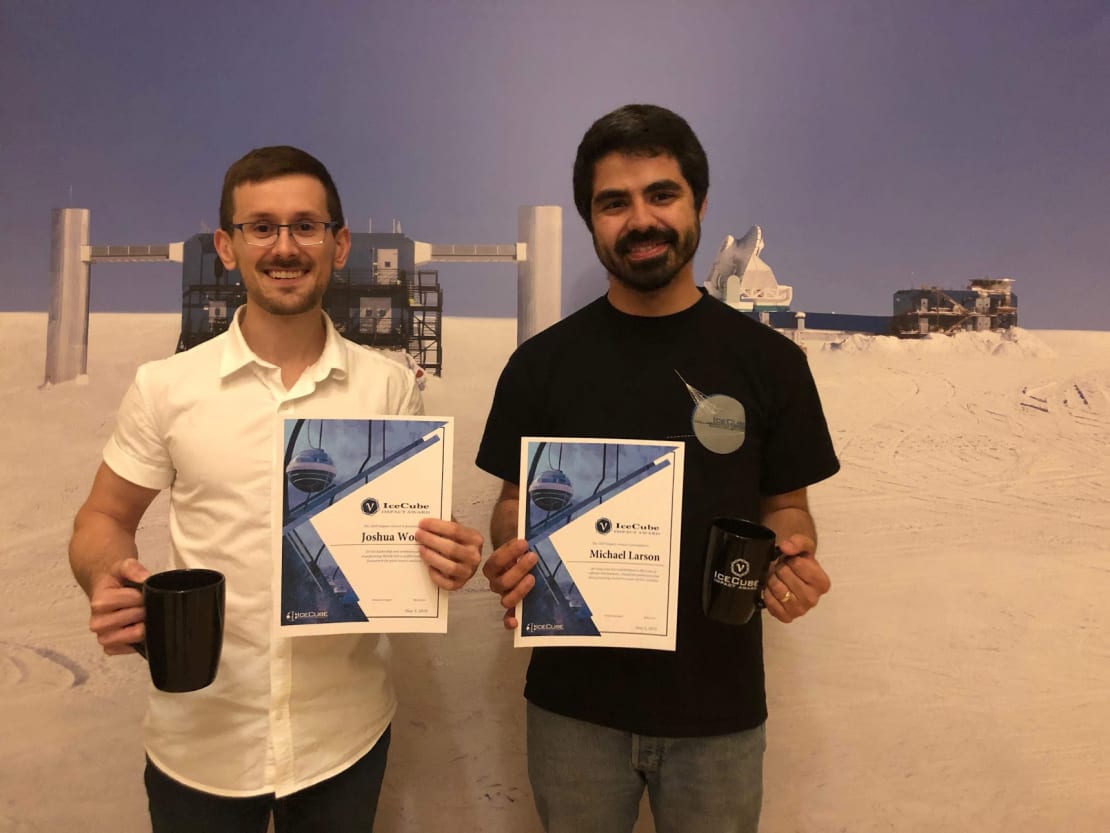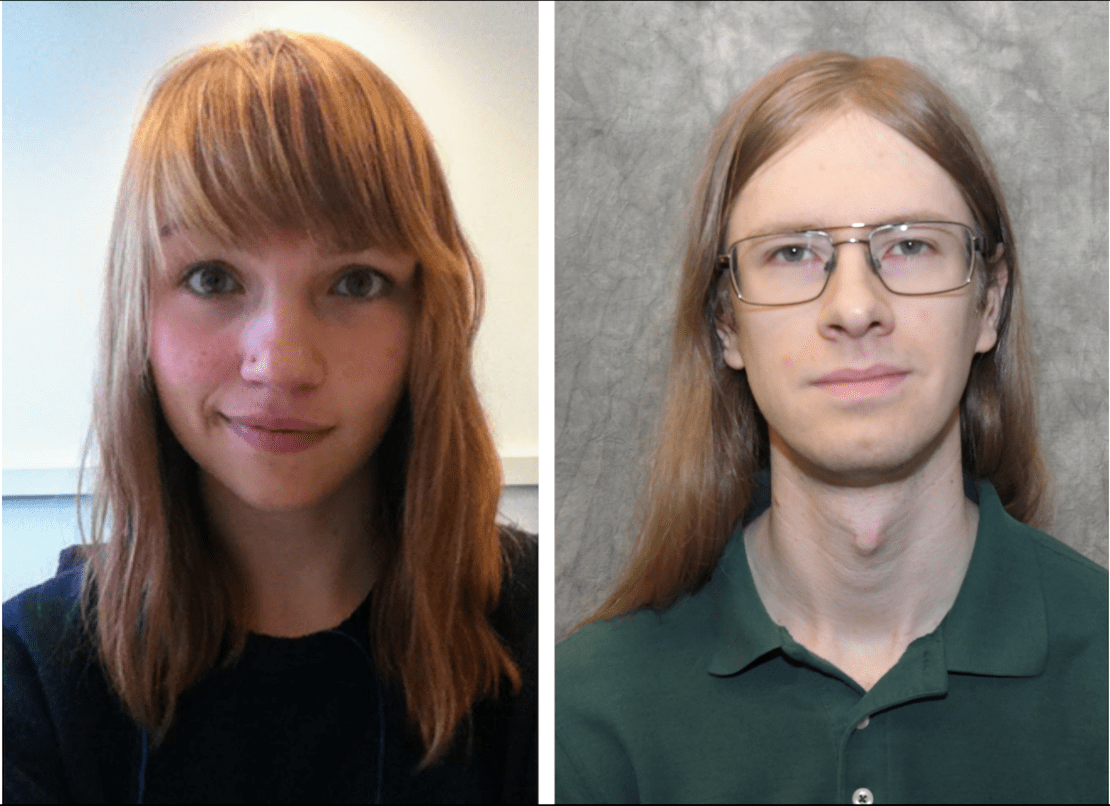
The third edition of the IceCube Impact Awards, which recognize contributions to the detector performance, was celebrated during the banquet dinner of the spring collaboration meeting last week in Madison.
The awardees for this meeting are Tessa Carver of the University of Geneva, Michael Larson of the University of Copenhagen, and Joshua Wood of the University of Wisconsin–Madison, and the legacy award goes to Chris Weaver for his long-term contributions as a PhD candidate at UW–Madison and later as a postdoc at the University of Alberta.
The IceCube Impact Awards were launched in 2018 to recognize efforts dedicated toward improving IceCube’s detector performance, which have a tremendous impact on many analyses but often do not result in a scientific publication, a standard format for reflecting scientific merit.
These awards are based on nominations from IceCube collaborators who are familiar with their colleagues’ contributions to the scientific production of the Antarctic neutrino observatory. The ultimate goal for these awards is to turn into means for both internal and external recognition of efforts in detector design, software development, and simulation production, among other activities.

The 2019 IceCube Impact Awards
Tessa Carver
For key contributions to the improvements of Level 3 muon and point source event selections, which are the bases for multiple IceCube analyses.
Michael Larson
For long-term key contributions to the areas of software development, simulation production, and data processing central to a suite of data analyses.
Joshua Wood
For his leadership and commitment in transforming Skylab into a unified analysis framework for point source analyses.

The 2019 Impact Legacy Award
Chris Weaver
For lasting contributions to the advancement, maintenance, and support of several core IceCube software packages.
In 2018, the awards recognized the contributions of Spencer Axani (MIT), Sarah Nowicki (University of Alberta), Martin Rongen (RWTH Aachen University) and Jakob van Santen (DESY), and Dima Chirkin (UW–Madison) with the Legacy Award.